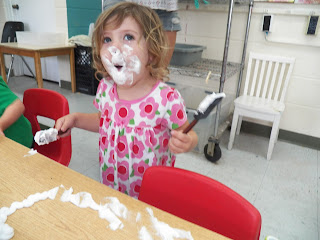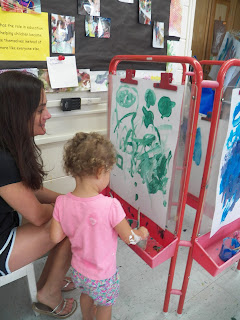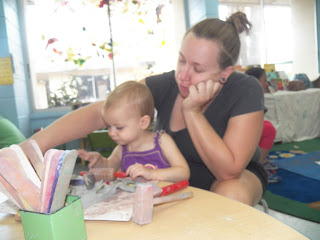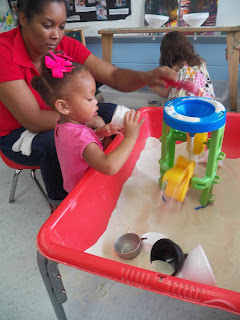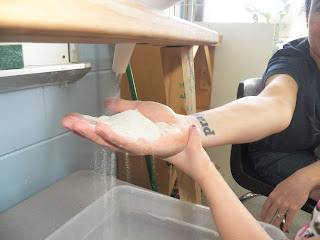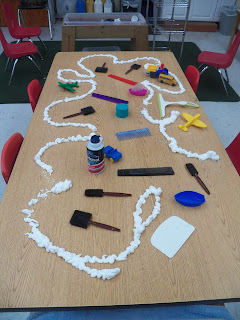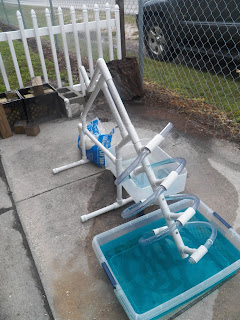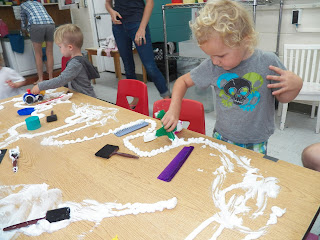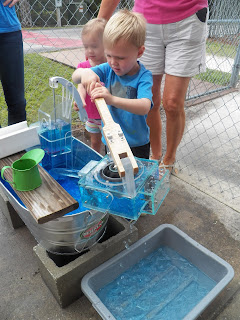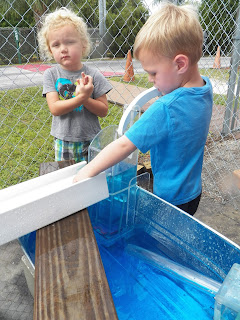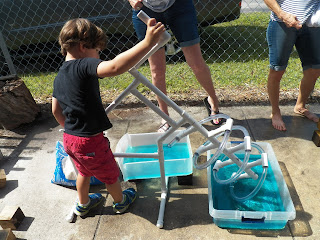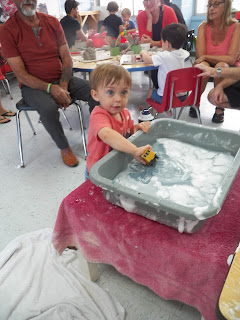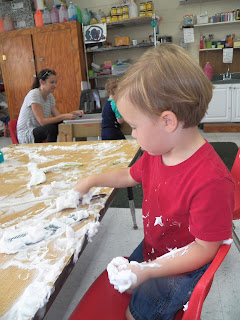Infringement of personal space and property.
Overwhelmingly, a child standing too close to another child or
a child squeezing into an experience where clearly (to any adult there) there was no room available...
these acts were deemed Unacceptable and quickly remedied by nearby adults.
"No, don't stand there, that little boy is there."
"No, that's his painting, you can paint over here."
"No, he's building with those blocks, wait for your turn."
"NO" "Wait" "Share" "Take Turns"
As, I watched and studied these interactions while simultaneously studying the early childhood philosophy of the Italians in Reggio Emilia. I was beginning to understand the cultural meaning behind American's strong sense of Personal Property, Personal Space, and the Person him/herself as an Independent Individual.
American's feel very protective over their rights as an individual. Dating back hundreds of years to the time of the Pilgrims treacherous voyage across the Atlantic to a land where they could practice their right to choose religion.
Italy (and other parts of Europe) evolved in a different manner.
The schools in Reggio Emilia came together after WWII as mothers and fathers rebuilt their city. The fascist regime of Mussolini had crumbled and with it the schools for children.
For this particular geographical area, the Catholic School System was the only choice at the time and the families were eager to embrace new lines of thought.
What began to emerge and over the years evolve was a system of Group Learning.
Majorly influenced by the cognitive psychologists Piaget and Vygotsky (among many others)...
the teachers in Reggio Emilia, Italy developed a unique theoretical, scientific approach that researched and valued the individual's experience of learning in the context of the "group".
And, it's no coincidence that this was taking place while the Democratic-Socialized government was being built all over Europe.
The phrase in Reggio is: "I am who we are."
"The frequent display of collective efforts, such as the woven bags of leaves collected on a walk outside, whereby each child can identify his or her contribution to the collaborative product, heightens the child's awareness of self as a member of and contributor to the larger group. "
The Hundred Languages of Children (2nd Edition Red Cover) p. 267
So, what am I getting at here?
Is learning an act of independence?
Or...
Is learning advanced by our role in the "group"?
Returning to my first thoughts...
When caregivers continually stepped in to "control" his/her child's social experience, over and over I began to see the Loss of learning for the child and for the group of children.
The caregiver (or teachers) stole possibilities of conflict in efforts to preserve the child as an individual.
But, in those acts of protection, I saw those same children losing confidence and actually develop more Dependent acts of behavior.
Loris Malaguzzi said, "To be in a group is a situation of great privilege."
"In such a time as this, with a society and culture that tend to isolate, to give children the possibility of being together and working closely together is like an emergency life raft."
The Hundred Languages of Children (3rd Edition, green cover) p. 67
For me, in my context at Wonder Studio, I saw the value in allowing children to problem solve these common situations.
What is so wrong in allowing children to stand side by side...
what might happen if 6 children squeeze in instead of 3?
What might happen if Johnny takes Suzy's blocks?
The adults are there as partners with the children, learning together.
Loosening the grip on "Controlling" children's learning in social groups has increased the child's capacity for self-reflection as well as increased his/her understanding of who they are and who they are becoming.
It has not always been easy to give up some control but it has made my teaching so so so so much more interesting.
And, it has strengthened my image of the child into a child that is strong...
A child who is capable...
A child who can make mistakes...
A child who holds an important place in our group.




